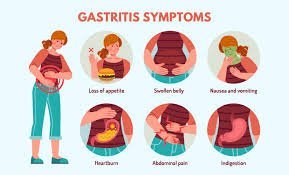Gastrointestinal Issues: Causes, Symptoms, and Effective Remedies
Gastrointestinal issues encompass a wide range of conditions that can disrupt the normal functioning of the digestive system. Causes vary from dietary factors, and infections, to underlying health conditions.

Introduction
Gastrointestinal (GI) issues affect millions of people worldwide, causing discomfort, pain, and disruptions to daily life. From common conditions like acid reflux and bloating to more severe disorders such as Crohn’s disease and irritable bowel syndrome (IBS), digestive health plays a crucial role in overall well-being. Understanding the causes, symptoms, and treatment options can help in managing these conditions effectively.
What Are Gastrointestinal Issues?
Gastrointestinal issues refer to disorders that affect the digestive system, including the stomach, intestines, esophagus, liver, and pancreas. These issues can be acute (short-term) or chronic (long-term) and vary in severity.
Common Causes of Gastrointestinal Issues
-
Dietary Habits: Consumption of processed foods, excessive sugar, and lack of fiber can disrupt digestion.
-
Infections: Bacterial, viral, or parasitic infections can lead to conditions like gastroenteritis.
-
Food Intolerances and Allergies: Lactose intolerance and gluten sensitivity can cause digestive distress.
-
Medications: Antibiotics, NSAIDs, and certain painkillers may affect gut health.
-
Stress and Anxiety: Psychological factors can impact digestion and contribute to IBS.
-
Underlying Health Conditions: Disorders like Crohn’s disease, ulcerative colitis, and celiac disease can cause severe GI symptoms.
Symptoms of Gastrointestinal Issues
-
Abdominal Pain: Sharp, dull, or cramping pain in the stomach region.
-
Bloating and Gas: Excess gas production can lead to bloating and discomfort.
-
Diarrhea: Frequent, loose, or watery stools.
-
Constipation: Difficulty in passing stools or infrequent bowel movements.
-
Heartburn and Acid Reflux: Burning sensation in the chest due to stomach acid moving into the esophagus.
-
Nausea and Vomiting: Feeling sick or throwing up due to various digestive disturbances.
-
Unexplained Weight Loss: Persistent digestive issues can lead to malnutrition and weight loss.
Common Gastrointestinal Disorders
-
Gastroesophageal Reflux Disease (GERD): A chronic condition where stomach acid flows back into the esophagus.
-
Irritable Bowel Syndrome (IBS): A disorder causing abdominal pain, bloating, and changes in bowel habits.
-
Inflammatory Bowel Disease (IBD): Includes Crohn’s disease and ulcerative colitis, causing inflammation in the digestive tract.
-
Celiac Disease: An autoimmune reaction to gluten, damaging the small intestine.
-
Peptic Ulcers: Sores in the stomach lining caused by H. pylori infection or excessive NSAID use.
-
Diverticulitis: Inflammation or infection of pouches in the intestines.
-
Gastroenteritis: Also known as stomach flu, caused by infections leading to diarrhea and vomiting.
Diagnosis of Gastrointestinal Issues
Doctors use various diagnostic methods, including:
-
Medical History & Physical Exam: Assessing symptoms and lifestyle factors.
-
Endoscopy & Colonoscopy: Examining the digestive tract using a camera.
-
Blood Tests: Identifying infections, inflammation, or food intolerances.
-
Stool Tests: Detecting infections, parasites, or blood in stool.
-
Imaging Tests: X-rays, CT scans, and MRIs to check for abnormalities.
Treatment Options
1. Dietary Modifications
-
Increase fiber intake for regular bowel movements.
-
Avoid trigger foods like spicy, fatty, and processed items.
-
Drink plenty of water to aid digestion.
2. Medications
-
Antacids and proton pump inhibitors (PPIs) for acid reflux.
-
Laxatives for constipation relief.
-
Probiotics to support gut bacteria.
-
Antibiotics for bacterial infections.
3. Lifestyle Changes
-
Eat smaller, frequent meals.
-
Exercise regularly to improve digestion.
-
Manage stress through yoga, meditation, or therapy.
4. Natural Remedies
-
Ginger tea for nausea relief.
-
Peppermint oil to ease bloating and IBS symptoms.
-
Chamomile tea to reduce stomach inflammation.
When to See a Doctor
Seek medical attention if you experience:
-
Persistent pain or bloating.
-
Blood in stool or black, tarry stools.
-
Severe diarrhea lasting more than a few days.
-
Unexplained weight loss.
-
Difficulty swallowing or chronic heartburn.
Conclusion
Gastrointestinal issues can range from mild discomfort to serious health conditions. A healthy diet, proper hydration, and stress management can prevent many digestive problems. However, if symptoms persist or worsen, consulting a healthcare provider is crucial for timely diagnosis and treatment. Prioritizing gut health is key to overall wellness and a better quality of life.
What's Your Reaction?














